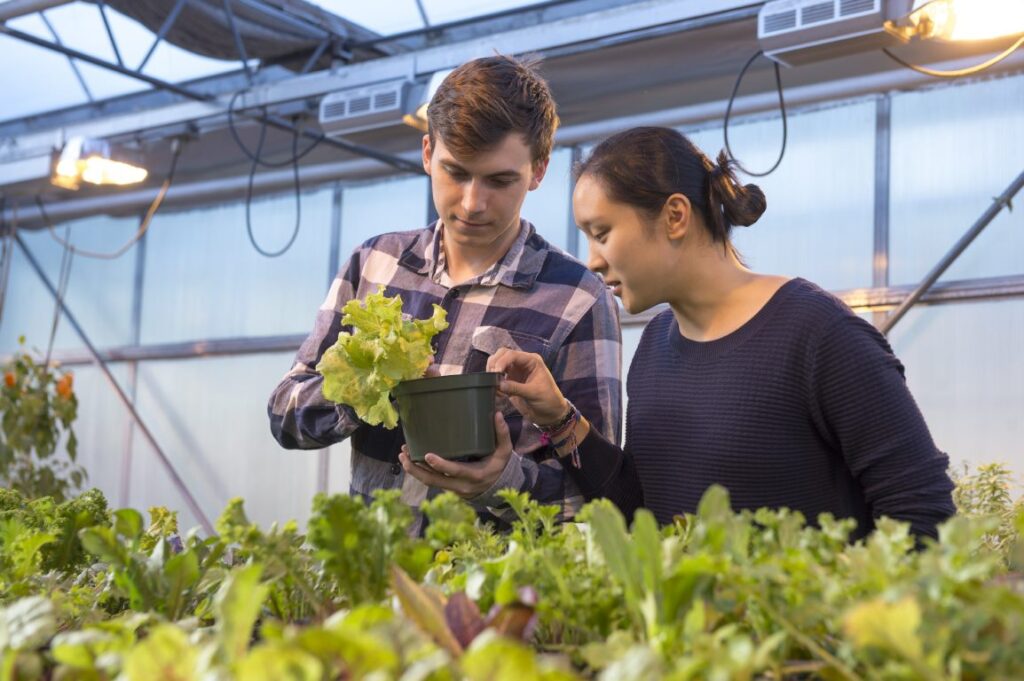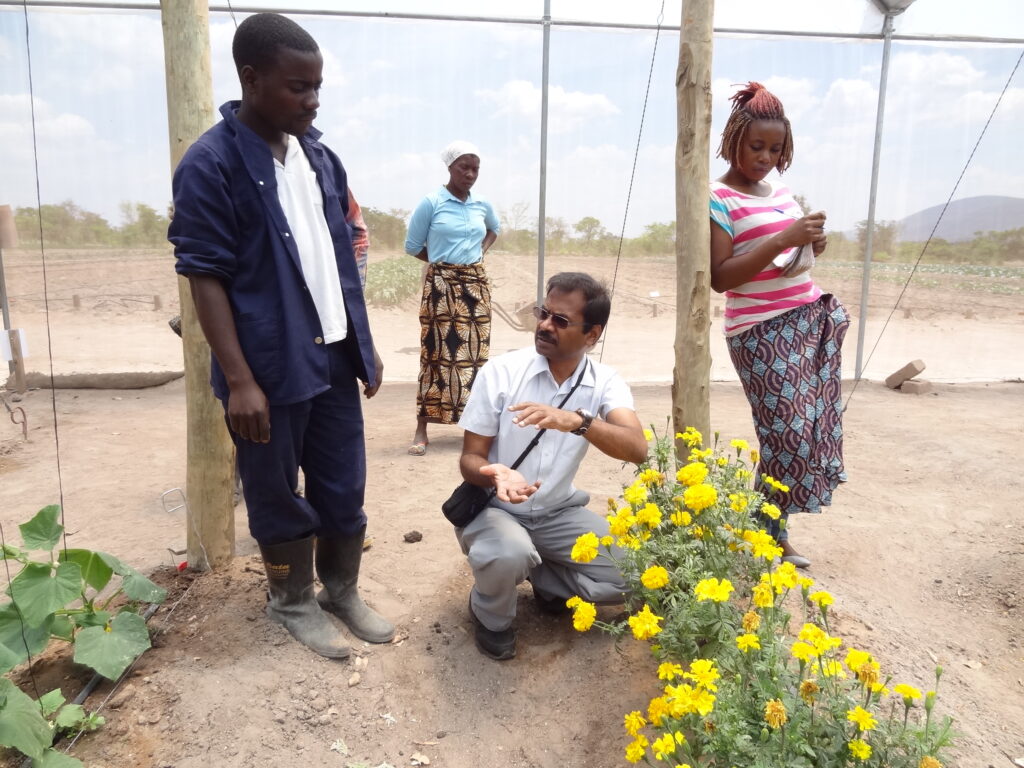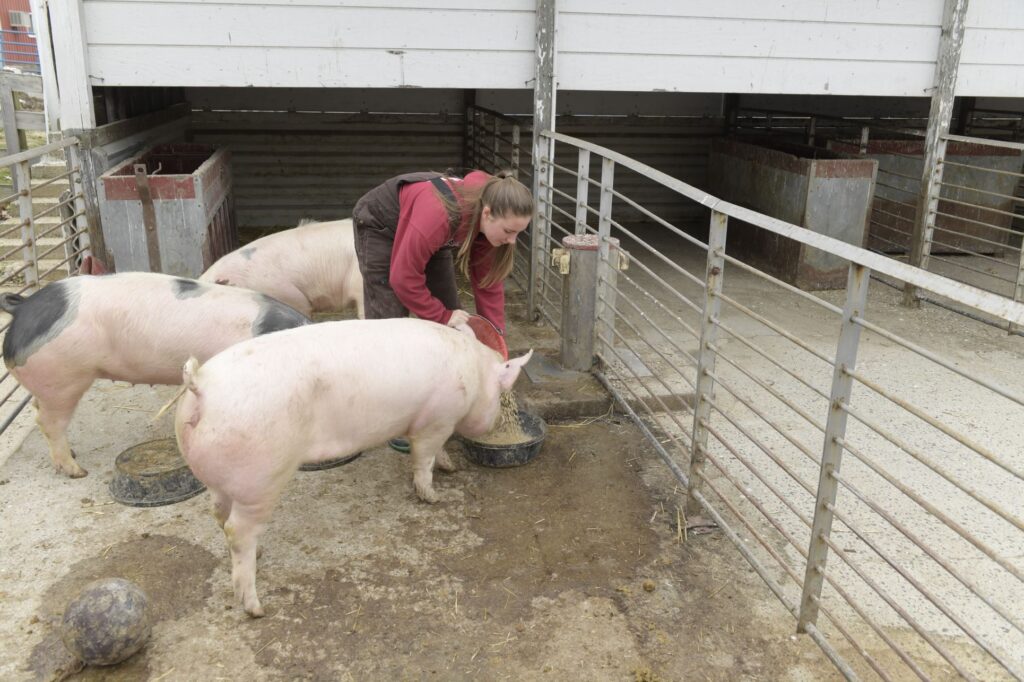Main Content
Undergraduate Program Menu
Course Schedule

The Minor in Sustainable Global Food Systems (18 credits) is designed for students who wish to expand their understanding of issues and challenges facing food systems that bridge the boundaries of nations and continents. Through this minor program, students will explore how food systems on a global scale are shaped by social, cultural, historical, political, environmental, and economic factors—and how global food systems in turn affect the environment and society. This option should be particularly useful to students who may pursue careers in the international arena.
Interested students should select a sequence of courses, one from each of four subject areas (I, II, III, IV), that relate to a particular topic, such as agriculture, health, food, or environmental management. The program also requires education in non-U.S. cultures and/or foreign language training (V) and practical experience (VI). Suggested courses that offer an international focus are listed for each of the subject areas below. Other courses may be substituted, in consultation with the directors of the program.
The minor program is administered through the Environmental Policy, Institutions, and Behavior (EPIB) curriculum in the Department of Human Ecology. Interested students should consult with their advisers and either Dr. Ethan Schoolman (Cook Office Building, Rm. 208, 848-932-9232; ethan.schoolman@rutgers.edu), or Dr. Xenia Morin (IFNH, Ste. 220, 848-932-3502; xmorin@sebs.rutgers.edu).

In fulfilling requirements for the minor, at least 3 credits must come from courses in the Department of Human Ecology, and at least 3 credits must come from courses in the Program in Agriculture and Food Systems.
I. Fundamentals of Sustainable Food Systems (3 credits)
Courses designed to give students a broad overview of the environmental, social, political, and economic characteristics of different ways of organizing how food is grown, processed, distributed, and consumed. Emphasis is placed in both these courses on models of sustainability. All students in the minor program must take at least one of the following two courses.
11:374:289 – Sustainable Food: Politics, Policy and Ethics (3; Human Ecology)
11:020:210 – Introduction to Agriculture and Food Systems (3; Agr. and Food Systems)
II. Geography and the Physical Environment (3 credits)
Courses relevant to understanding environmental systems and problems characteristic of a region, world area, or habitat outside of the United States.
11:374:108 – Processes of Human Ecology (3; Human Ecology)
01:450:101 – Earth Systems (3; Geography)
01:450:102 – Transforming the Global Environment (3; Geography)
11:776:102 – Soil and Society (3; Plant Biology)
11:020:492 – Tropical Agricultural Systems (3; Agriculture and Food Systems)
11:020:337 – Sustainability: Tackling Food Waste (3; Agriculture and Food Systems)
III. Cultural and Historical Considerations (3 credits)
Courses relevant to understanding cross-national comparative, historical, and/or sociocultural factors in examining issues related to the environment, food, health, population, and agriculture.
11:374:269 – Population, Resources, and Environment (3; Human Ecology)
11:450:205 – World Cultural Regions (3; Geography)
01:070:220 – Food and Culture (3; Anthropology)
01:070:341 – Language, Food and Society (3; Anthropology)
11:709:363 – World Food Customs and Nutrition (3; Nutrition)
11:709:364 – Nutrition and Health in Developing Countries (3; Nutrition)
IV. Political Economy (3 credits)
Courses relevant to understanding international political and economic institutions, or to the comparative cross-national study of political and economic institutions outside the United States.
11:374:305 – Globalization, Development and Environment (3; Human Ecology)
11:374:279 – Politics of Environmental Issues (3; Human Ecology)
11:374:314 – Natural Resource Policy (3; Human Ecology)
11:373:371 – Food Health and Safety Policy (3; Agriculture, Food and Resource Economics)
11:776:478 – China’s Agricultural Challenges and Global Impacts (3; Plant Biology)
11:373:218 – Sustainable Food Policy for Developing Countries (3; Agriculture, Food and Resource Economics)
V. Foreign Cultures and Languages (3-8 credits)
Option 1. Completion of instruction, or evidence of its equivalent, in a modern, spoken language other than English for at least two semesters at the intermediate or advanced level. This may include enrollment in SEBS language engagement courses that are currently in development.
Option 2. Courses whose aim is to familiarize students with the history, culture, and politics of regions outside the United States. Some possible courses for completing this requirement are listed below. Students wishing to fulfill this requirement with a course not listed should speak directly to Dr. Schoolman or Dr. Morin.
01:595:297 -Caribbean Societies (3; Latino and Caribbean Studies)
01:016:222 – Modern Africa (3; African Studies)
01:508:335 – Modern South Asia (3; South Asian Studies)
11:020:465 – Special Problems in Environmental Sciences (3; Agriculture and Food Systems)
VI. Practical Experience or Study Abroad (3 credits)
This area comprises different ways of gaining insight into food systems outside of the normal classroom setting at Rutgers. Possible ways to fulfill this requirement include relevant research at home or abroad, overseas work, study and travel, employment, or a combination of these. Credits are gained through registration for curricular independent study, field study, research, and practicum courses or a SPIN (Student to Professional Internship Network) experience at the School of Environmental and Biological Sciences. Credits for this requirement must also be approved by either Dr. Schoolman or Dr. Morin, as the “practical experience” at hand must be substantially related to topics in global food systems.
11:374:490 – Research and Practicum (credits by arrangement; Human Ecology)
11:374:492 – Environmental Studies Internship (credits by arrangement; H.E.)
11:020:490 – Practicum (credits by arrangement; Agriculture and Food Systems)

Program Directors
Ethan D. Schoolman, Ph.D., Associate Professor
Cook Office Building, Room 208
848-932-9232
ethan.schoolman@rutgers.edu
Dr. Xenia Morin
IFNH, Ste. 220
848-932-3502
xmorin@sebs.rutgers.edu